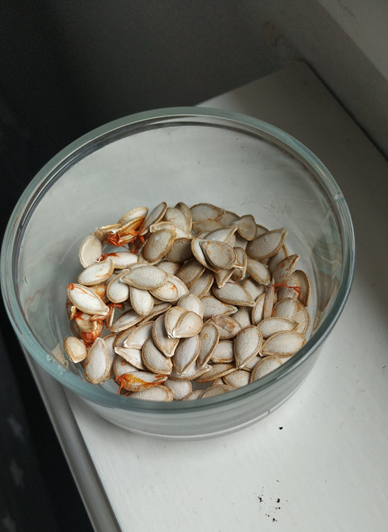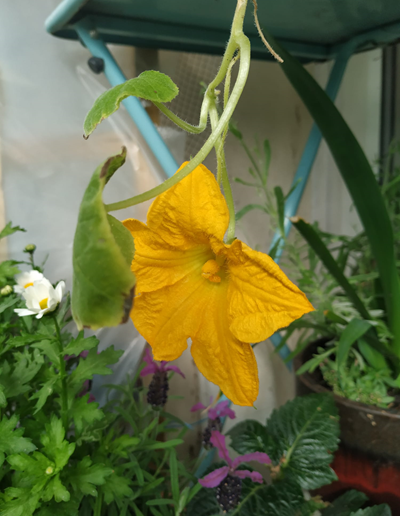Introduction
Islington is one of the smallest London boroughs, but our neighbourhoods are packed with tastes, smells and cooking traditions from all over the world.
The Islington Food Partnership has put together this collection to celebrate Islington’s diverse cultures and explore the ways that food shapes who we are and the places we live.
Inside you will find recipes, stories and artwork from local cooks, growers, activists and food-lovers.
Contributors
With a very special thank you to:
Geraldine Brennan
Marcia Harris
Rafael Montero
Regina Boakye-Yiadom
Rona Topaz
Robin Campbell
Agnieszka Wcislo
Jamica, Dayl, Rebecca, Hiyabel and the young people at Global Generation’s Friday Night Out cooking programme
Members of Hilldrop Community Centre
The families at St Luke’s cooking class
Contents
- Turkish red lentil soup recipe (MercimekÇorbası)
- Artwork from young people at Global Generation
- Malawah recipe
- The native American connection in Highbury
- Café of Dreams
- Vegetable Sauce recipe
- Bread that bonds
- Untitled food story (CW: reference to abuse, EDs and fatphobia)
- Artwork from members of Hilldrop Community Centre
- Shakshuka recipe
- Easy flatbread recipe
- No-bake cookies recipe
All recipes are labelled as containing Dairy, Nuts, or being vegan and Gluten-free where applicable. All recipes are, or can be made, halal
Turkish Red Lentil Soup (Mercimek Çorbası)
Serves 6, vegan and gluten-free
Ingredients:
• 2 tablespoons olive oil
• 1 medium yellow onion, diced
• 1 large carrot, peeled and diced
• 1 medium potato, peeled and diced
• 2 garlic cloves, minced
• 1 tablespoon tomato paste
• 1 teaspoon cumin
• 1 teaspoon salt
• 1 teaspoon paprika
• ½ teaspoon dried oregano
• ¼ teaspoon black pepper
• ¼ teaspoon cayenne or Aleppo pepper/Pul biber
• 5 cups vegetable stock
• 1 cup red lentils
• 1 sprig of fresh mint
• 1 lemon, sliced
Instructions
1. Heat the olive oil in a large pot. Once the oil is hot, add the diced onion and fry until golden on medium heat.
2. Add the diced carrot and diced potato to the pot. Fry for 4 minutes, stirring occasionally.
3. Add the garlic and stir for 30 seconds.
4. Add the tomato paste, cumin, salt, paprika, oregano, black pepper, and cayenne. Stir for 3 minutes and then deglaze the bottom of the pot with a small amount of the vegetable stock.
5. Add the remaining stock and lentils. Stir and bring to a boil. Reduce the heat and let it simmer for 30 minutes, stirring every so often. If the soup gets too thick, add a cup of water.
6. Remove the soup from the heat and stir in the chopped mint. Use a hand blender to blend the soup until it’s creamy and all the ingredients are incorporated.
7. Squeeze some fresh lemon juice over the soup once you have plated up.
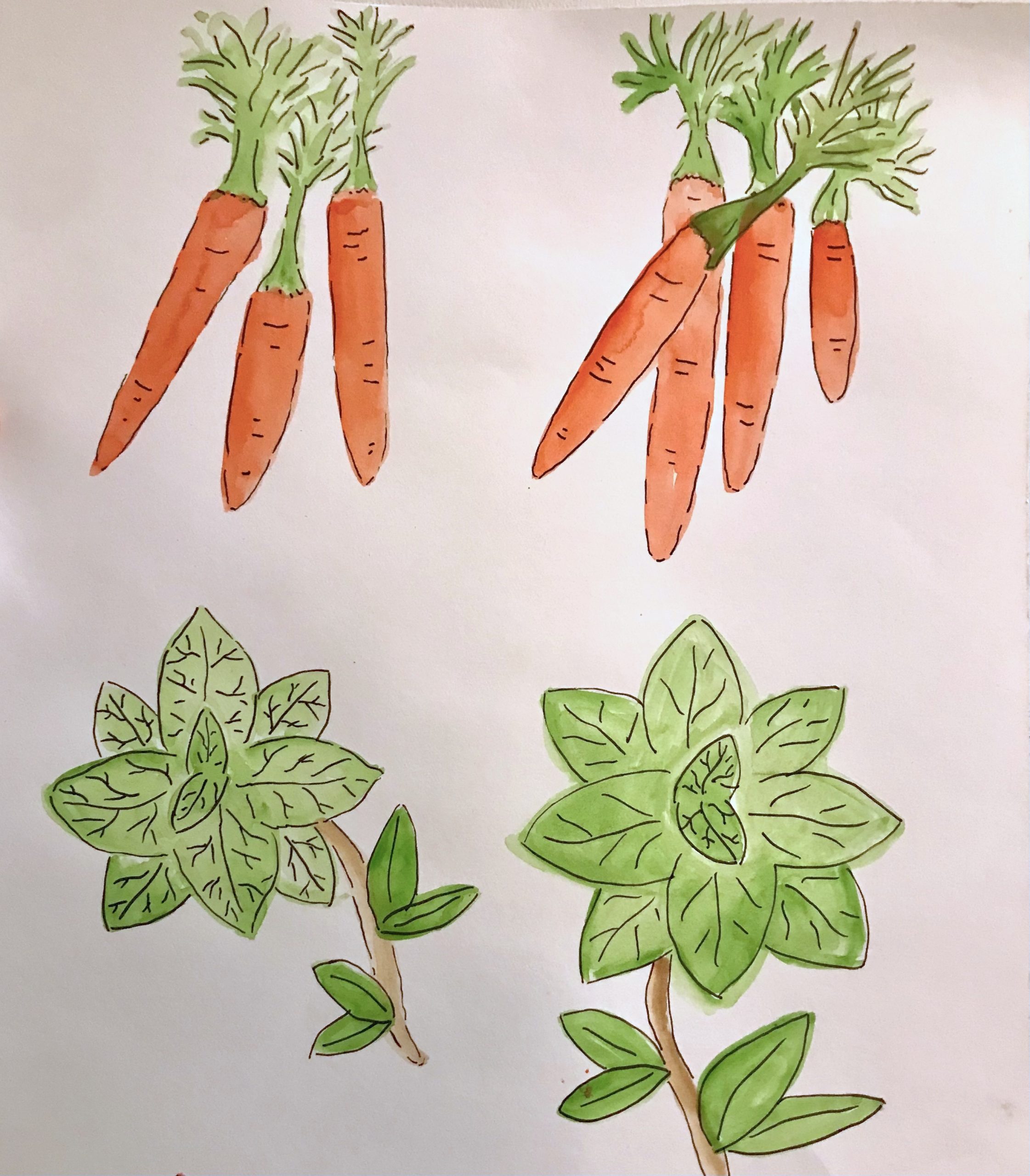
Artwork by young people at Global Generation's Friday Night Out cooking programme
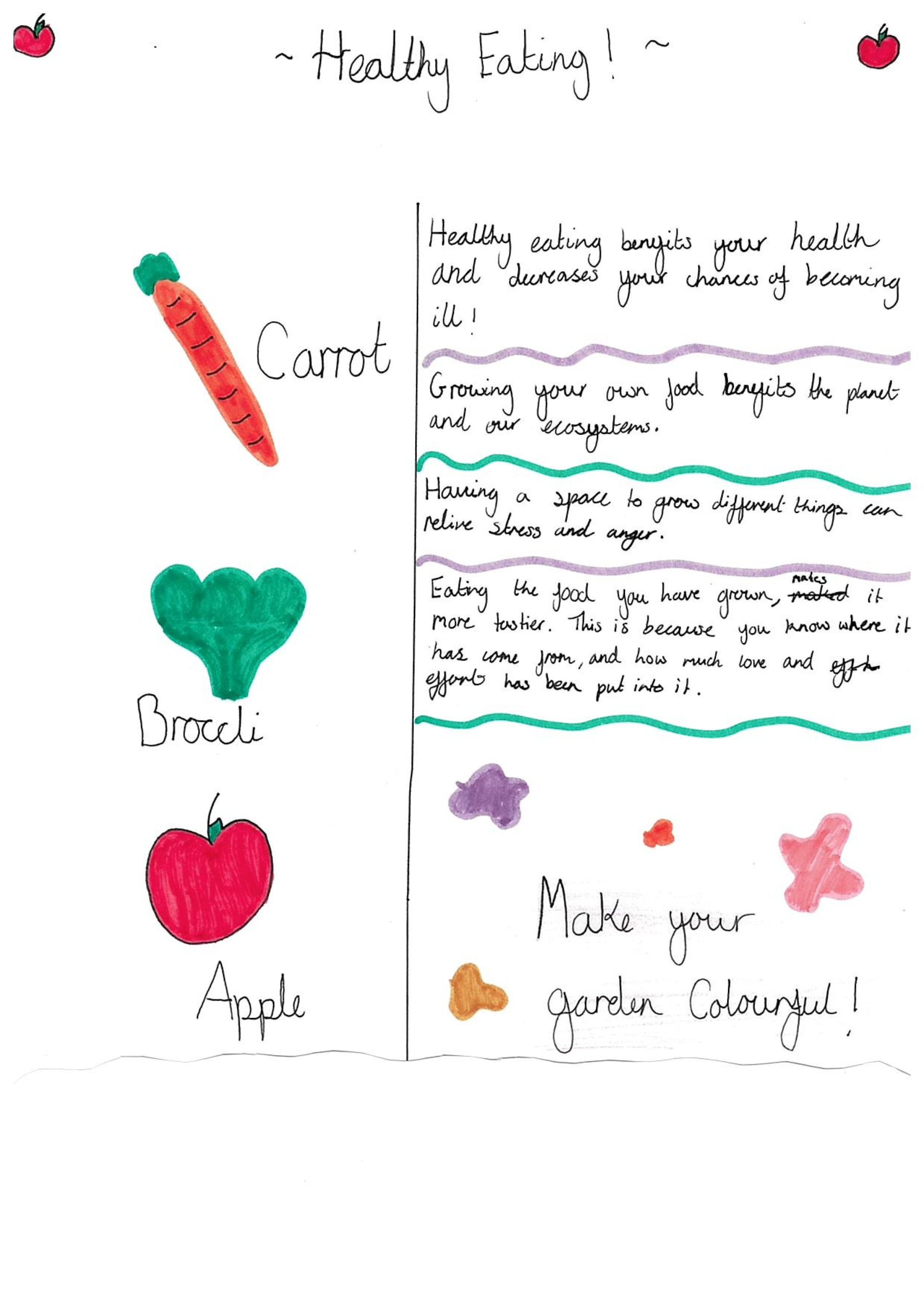
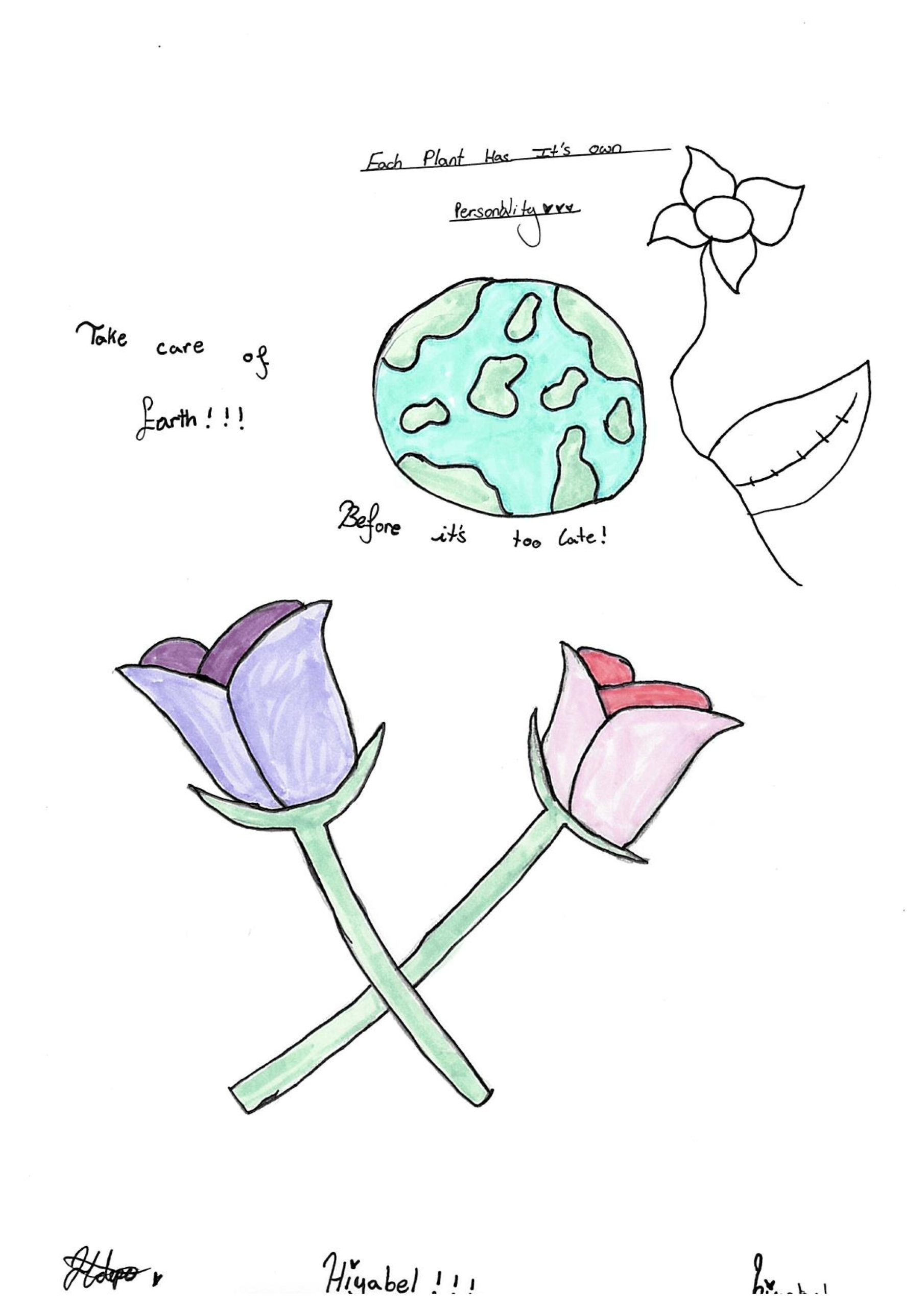
Malawah recipe (Somali sweet pancake)
Malawah (Somali sweet pancake)
Handwritten text reads: “Malawah is like a sweeter version than a pancake and it’s more cultural than normal pancakes. My favourite person that made the malawah is my aunties.”
(recipe makes 8-10)
2 cups of flour
2.5 cups of milk
2 large eggs
1/2 teaspoon of cardamom (ground)
1/2 teaspoon of ginger (ground)
pinch of salt
2 tablespoons of oil or butter (for frying)
Serve with honey, butter, sugar or lemon
Method:
1) in a bowl, whisk together the flour, eggs, milk, spices & salt
2) heat the oil in a frying pan, ladle in some batter and swirl the pan so that the batter spreads to the edges
3) cook for 1-2 minutes, until slightly golden, then flip it. Cook for another minute
4) serve with honey, butter, sugar or lemon
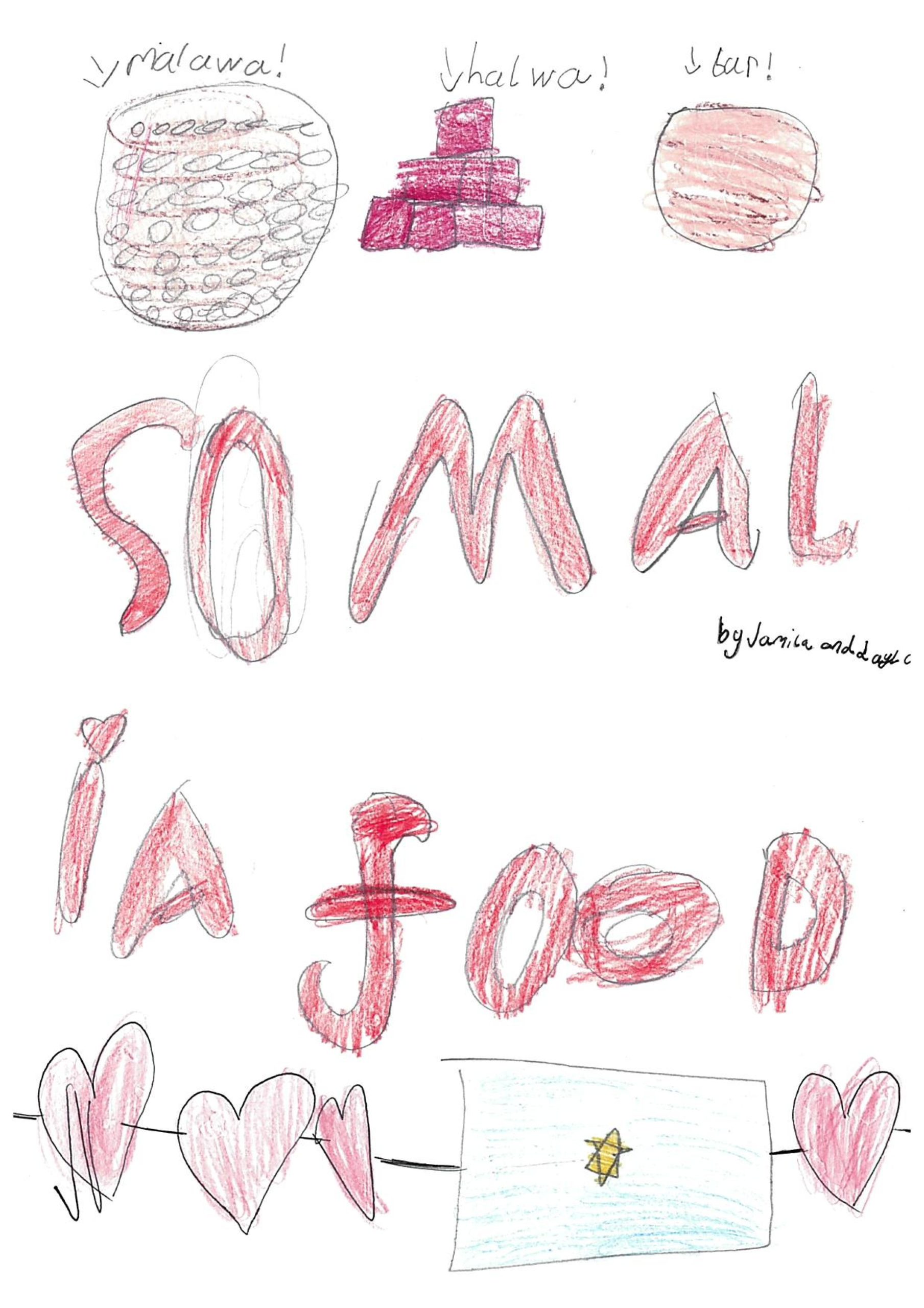
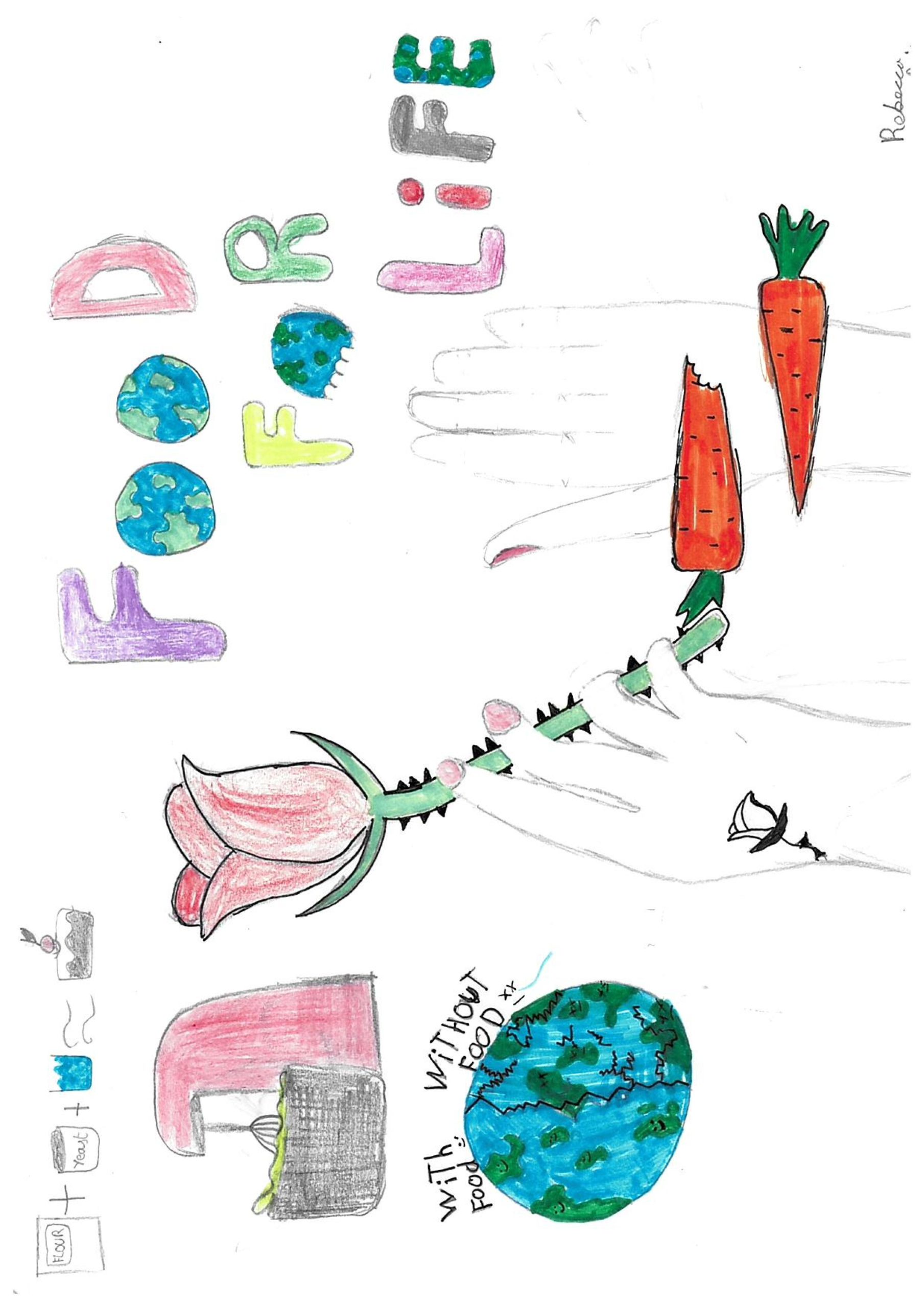
The native American connection in Highbury
I love Highbury, my neighbourhood and all the cultures living here.
I love plants, growing them, taking care of them and I also plant vegetables that l can eat: from my balcony to my table.
I am a Native American from North Argentina, and l am a singer and coach living in the Highbury Quadrant Estate. l have a balcony where l grow tomatoes, different varieties of pumpkins, potatoes and peppers.
Did you know that all these vegetables come from South America? And you can grow them all in your garden or balcony and prepare salads in summer or nice soups in winter.
In the fall, my grandmother and mother in San Pedro de Jujuy, where l was born, used to cook my favourite meal: carbonada de zapallo.
The diet of Native Americans is in great part vegetarian, and in this soup you don’t find meat. Nowadays, the carbonada is especially eaten in the fall and the time before Easter.
It is a soup-like dish made of pumpkin, potatoes, carrots, onions and garlic, cooked slowly and with love. At the end we put grated cheese on it, especially llama cheese.
I prepare my own Native American dishes with vegetables I grow myself, and also buying from the local shops in the neighbourhood.
When l eat these dishes on my balcony I am immediately transported in time and space to my San Pedro de Jujuy, reunited with my family.
Since I am living in London, where I have my ensemble for early music, I include English musicians in my ensemble and also English ingredients in my food, pairing together my Native American culture with the British culture.
You can also easily grow food yourself in your garden or balcony. You can take seeds from vegetables you buy, plant them and see how they grow every month. Once you harvest them, keep the seeds and plant them again. That’s the cycle of life, happening in your balcony in this case.
You can top the carbonada de zapallo with wonderful extra mature cheddar cheese.
My recipes and information about me and my ensemble are in Instagram and facebook: el parnaso hyspano
by Rafael Montero
Four photos: one of plants growing on a balcony, another of a yellow flower of a pumpkin growing, a third photo of pumpkin seeds in a bowl and a photo of Rafael sitting on their balcony and eating carbonada de zapallo
Café of Dreams
In the early 1990s I spent many a long morning signing off page proofs at a typesetters in Compton Street off St John Street. My stomach would be growling as the lunch break approached. Often it was near close of play at the cosy and affordable Italian cafés nearby by the time we were released. I don’t know what dates me the most: “typesetters”, “lunch break” or “affordable cafés [in EC1]”.
We always collapsed into Jenny’s or Peppe’s or somewhere else of hazy memory just in time to inhale a mountain of carbs and cheese. If that week’s paper was done and dusted we made a dash for Chapel Market and an Indian Veg buffet, which would keep you going for days.
I went on a pilgrimage to the Compton Street café heartland recently. I knew what I would find: Beppe’s closed down with repo notice on the window, no sign of Jenny’s (I often think I must have imagined it —the café of dreams) and Compton Street itself sandwiched between a Pret and a Little Waitrose (see what I did there?). I couldn’t find the typesetters but I am probably the last person in Islington to discover that the electrical shop sells lovely Cyprus-imported olives and candied fruits.
Once I’d moved to Islington properly in 2014, I grazed my way up and down Seven Sisters Road (Michael’s greengrocers and the nut stall at the car boot sale) and Holloway Road (from Korkmaz to Hing Yip) like a very hungry caterpillar.
I finally got my feet under the neighbourhood table in the early days of the pandemic. In the Finsbury Park Cook Club WhatsApp group, inspired by Mutual Aid and set up by Esther, we traded sightings of essentials like flour (I was excited to find a cheap sack of flour online, but it was limestone flour, for horses), shared pictures of our shut-in meals and swapped the recipes that got us through it all. Rarely a day went by without connecting. Elena and I met IRL masked and scarved outside Holloway Road Argos to trade jars of sourdough starter (what else?) and black rice vinegar from Hing Yip. These encounters were the highlight of the week.
My Cook Club favourites are still on the menu: Esther’s satay sauce, Sue’s foraged wild garlic pesto, Emina’s halloumi cake, Pia’s harissa carrot dip, Mary’s ginger cake (my contribution, Mary was my mum). Through this group I started volunteering with St George’s Mutual Aid and found Hilldrop Community Centre, making up and delivering food parcels through the pandemic.
I am still at the Hilldrop, with food never far away, baking giant batches of scones for summer fairs or Guinness brownies for the Cook for Ukraine bake sale, picking up Food for All meals to deliver, tucking into the Tuesday Food Hub zero waste lunch cooked from supermarket surplus by Robin, our wonder chef, hearing tales of our new creative cookery club with Cut Moose. My new Islington café of dreams.
by Geraldine Brennan thesalonlab@gmail.com
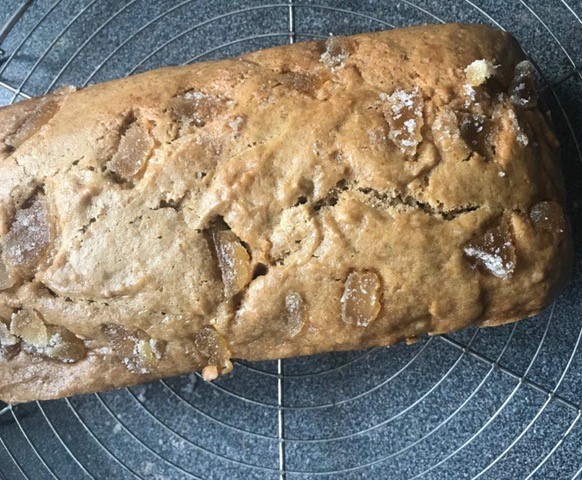
Veg sauce recipe
(makes 3-4 servings)
Gluten-free and vegan
Ingredients:
2/3 tablespoons of oil
1 large onion finely chopped
2 small garlic gloves, finely chopped
100/200g mushroom, chopped
1 or 2 carrots, finely chopped
1 courgette, finely chopped
Mixed peppers, finely chopped or any vegetables of your choice
1 tablespoon mixed herbs
1 teaspoon paprika
Small bunch of coriander roughly chopped
1 Coconut milk
Serve with Rice, couscous, naan bread or normal bread
Method:
1) Slice onions, peel and chop garlic and set aside
2) Wash the mushrooms, chop and set aside
3) Heat oil gently/low heat in a pot or pan cook onions for 5 minutes until soft or caramelised
4) Add garlic, paprika, carrots, cook for 1 -2 minutes
5) Add mushrooms, courgettes, mixed peppers, add seasoning, mixed herbs/vegetable stock cook for 6-7 minutes, add coconut milk cook for 2-3 mins
6) Stir occasionally, when sauce is thickening add chopped coriander. Turn off the heat.
7) Taste it and add own ingredients of choice
8) Top with coriander and serve. You can add your own salad on side.
Use ready-made cooked rice, couscous, naan bread, pitta bread or any bread of your choice.
Any leftover can go in the freezer.
by Regina Boakye-Yiadom
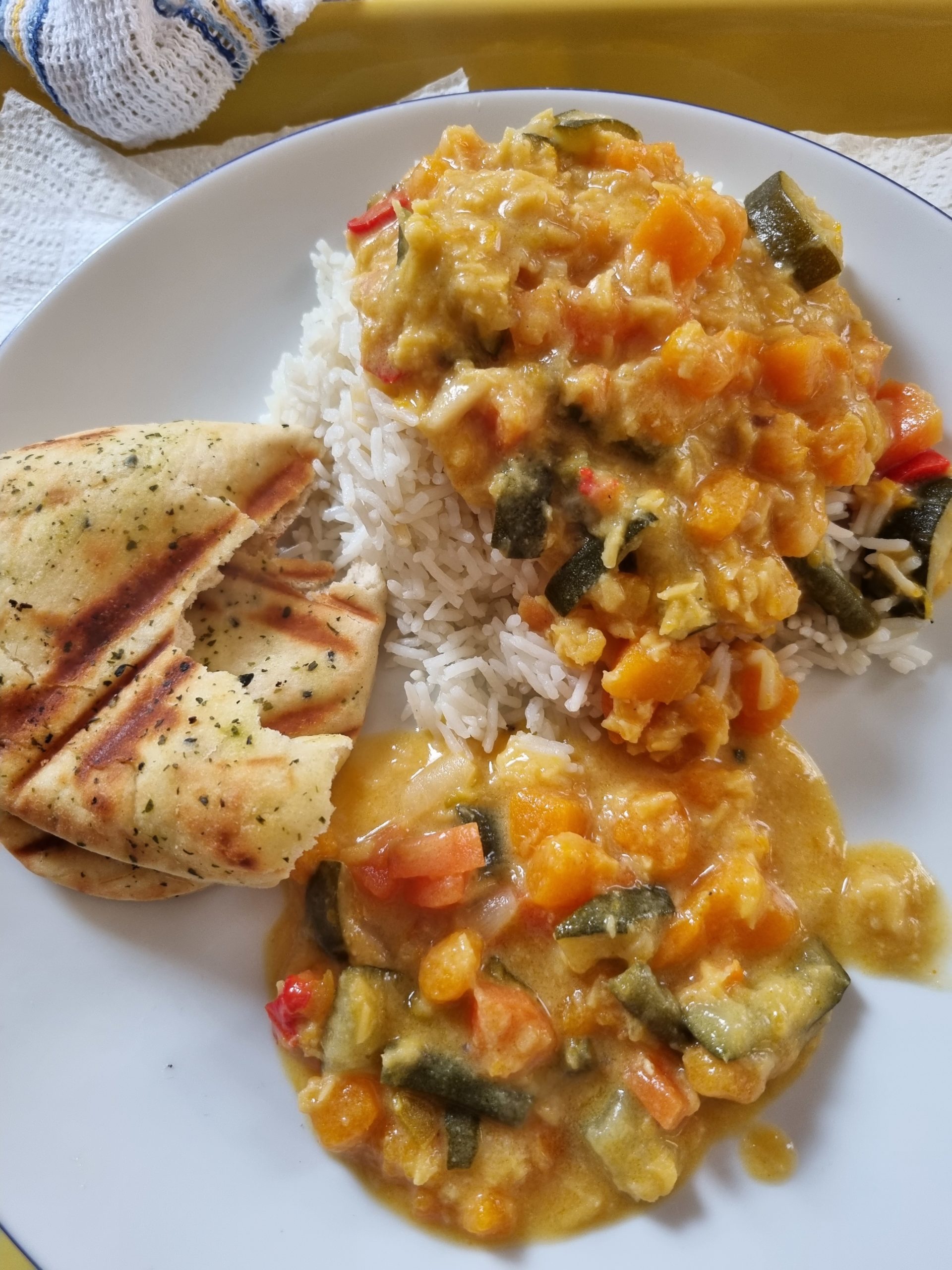
Bread that Bonds: Strengthening Families Through the Power of Baking
As a former baker and ambassador for the Real Bread Campaign, I often incorporate food and baking into my role as a Child and Family Support Practitioner with in an Islington Primary school. Food is an important means of connecting with families and I run many of Islington councils’ Healthy Eating initiatives, such as Family Kitchen and TastEd. Recently with the help of Co-operation Town, we also set up a food co-op and community fridge.
This year I decided to take a personal leap, and combine my love for baking with my passion for helping children become more resilient, and Bread that Bonds was born – A social enterprise that uses baking as a therapeutic tool, to help parents and carers explore emotional literacy with their children.
In the initial stages, I sought help from Impact Hub London and participated in their free business incubator program. This provided me with the necessary support and resources to nurture my idea and bring it to life. Organising our first free taster sessions at a beautiful venue during half term marked a significant milestone on my journey.
Given the challenges our Islington families have faced in recent years, I firmly believe that baking bread is a powerful tool for promoting positive family dynamics and improving mental health. I hope that my story inspires you to pursue your passions and make a positive impact in your community.
If you’re interested in learning more about Bread that Bonds and our mission to bring families closer together through the power of bread, please get in touch.
@theflourunion
Theflourunion.com
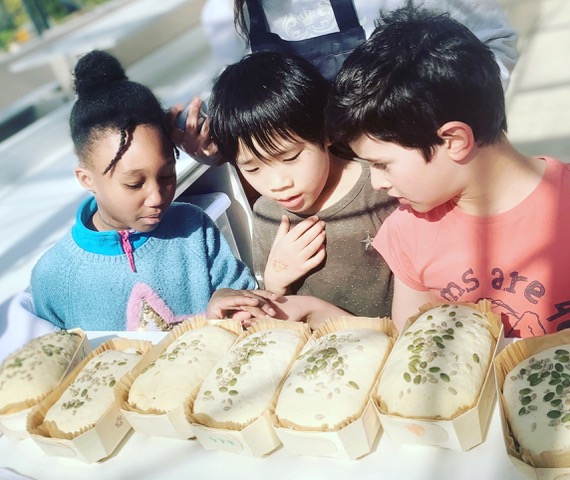
Untitled food story
Content warning: references to abuse, EDs and fatphobia
My parents neglected and abused me, and my first years were spent malnourished. Breakfast was vitamins, lunch was when my mother remembered to feed me. Dinner was the same food 6 nights a week, with a slight variation on Sundays. A different type of meat (always meat, never fish or chicken, until much later on) tinned, tasteless veg, and rice.
I developed bulimia at age 6 when I started getting bullied at school to add to the abuse at home, binge eating and vomiting up to 7 times daily. At age 7 I weighed two stone, and missed two thirds of the school year through illness.
At age 8, I registered myself with a GP surgery a few blocks away from us, who immediately suggested a diet plan and brought in social services. Sadly I was not taken into care, but being mobility challenged, along with the new diet, meant that I gained two stones rapidly.
Suddenly I was “too fat”, and underwent a series of interventions to get me to lose weight. At that point my relationship with food was sealed
however, I had fell in love with pasta, which had an anti-depressant effect and put an end to my bulimia. I remained overweight to a point where the bullying became intolerable. However, when I lost a stone and a half aged 11 by starving myself, it did nothing to improve the quality of my life. So I decided at that point to eat what I want, when I want.
I associate falafel with Islington, and kebabs, I’m not sure why.
Now, my favourite meals are: vegan fish with chilli sauce, Thai noodles with Birdseye chillies, or breaded mushrooms with pasta and Campbell’s mushroom soup as a sauce, spicy gherkins, vegan sausage rolls, and vegan meat pies with Italian salad. I love vegan Indian food as well. Strong flavours and textures.
My favourite snack is a potato bread scone with plant based garlic and herb cheese, king prawns, and the obligatory chilli sauce.
I am still disabled and overweight, but I dropped two dress sizes after discovering CBD, which has dramatically improved my mobility.
by Rona Topaz
Artwork from members of Hilldrop Community Centre
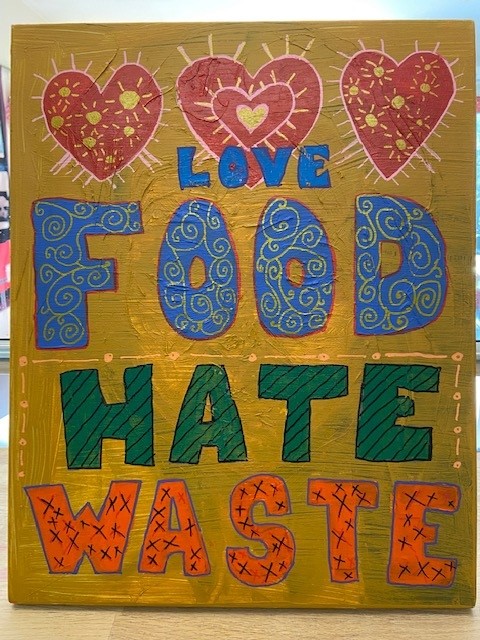
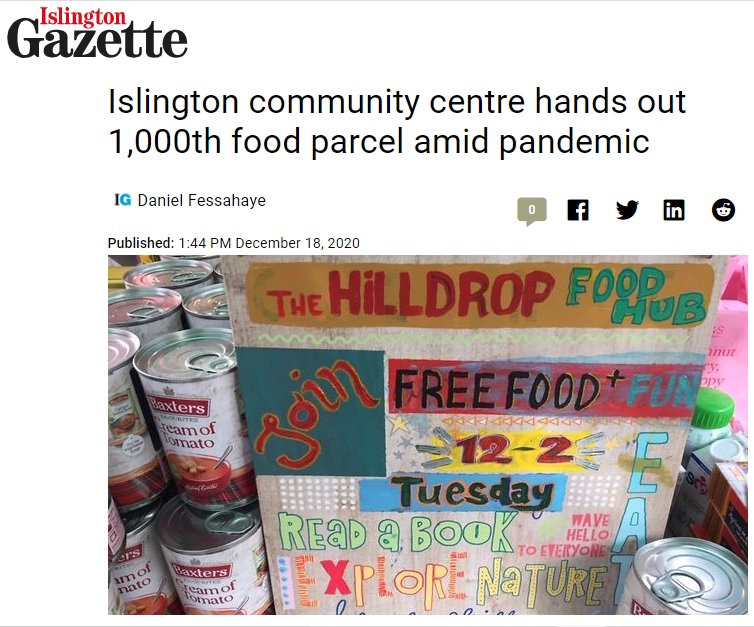
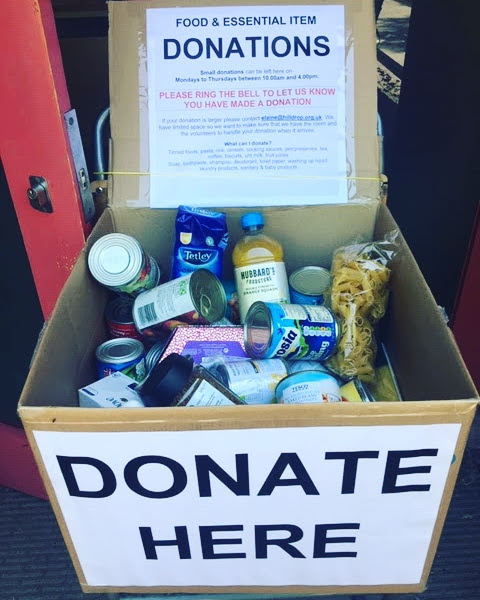
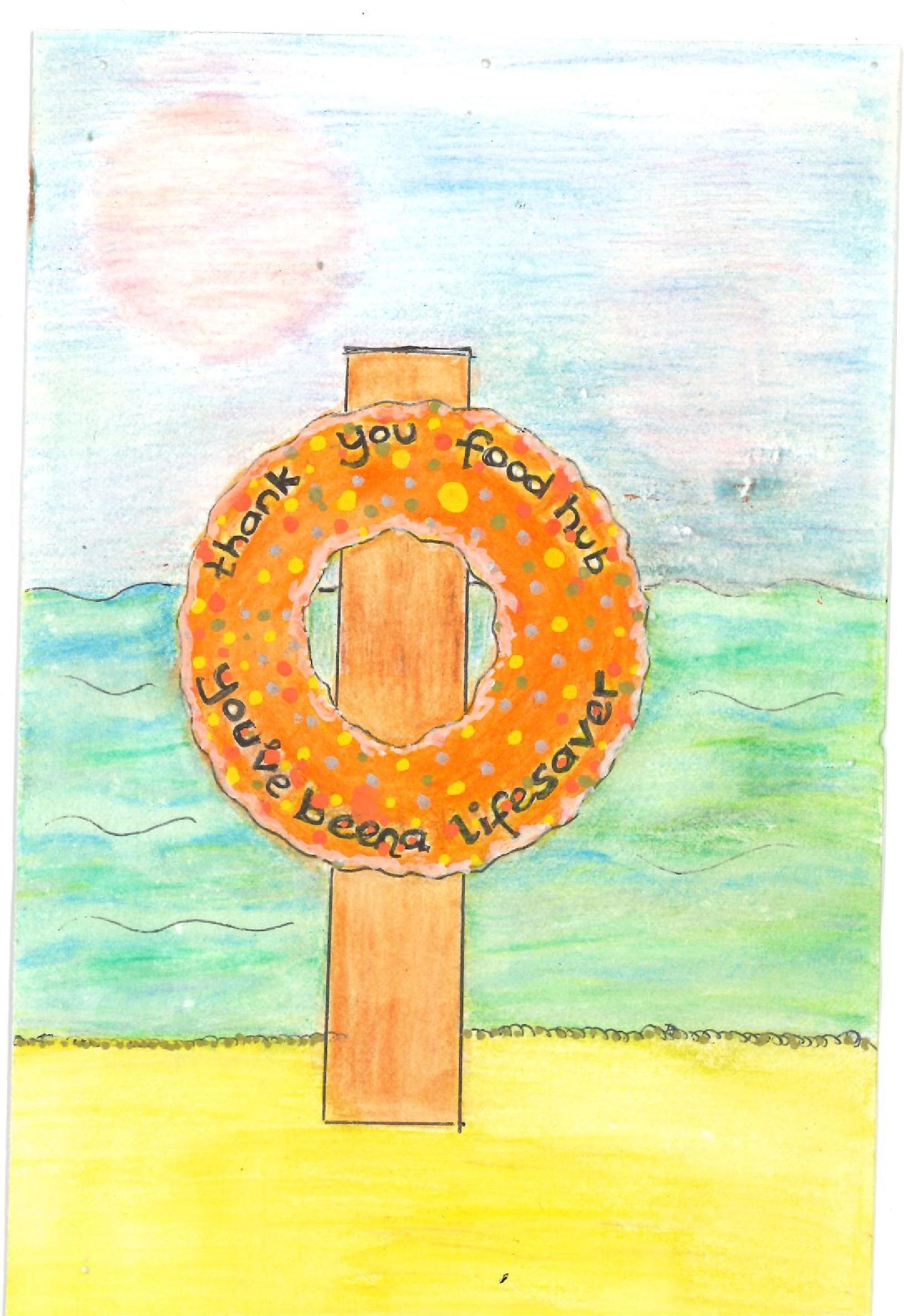
Shakshuka recipe
Gluten-free, vegetarian
(serves 2-3)
Ingredients:
3 bell peppers
1 zucchini (courgette)
1 medium Onion
Garlic (a few cloves)
Any other vegetables e.g., broccoli
Spices: fajitas seasoning, cumin, sweet paprika, ground coriander
2 or 3 eggs
Grated cheese (any cheese)
100-150ml of vegetable stock
2-4 tbsp. chopped tomatoes
Optional: beans*
1 tsp. Oil
Method:
- Wash and cut all the vegetables (dice or slice but keep it consistent)
- Warm up frying pan and add oil
- When oil is hot add onions and sauté for 3 minutes, then add all vegetables.
- Sauté for 10 minutes until soft and add seasoning. Taste it.
- Add beans*, stock and chopped tomatoes and simmer for 5 minutes.
- Make a well and crack two eggs. Cover it and cook it until egg yolk is set.
- Once eggs are cooked add grated cheese. Enjoy.
by Agnieszka Wcislo
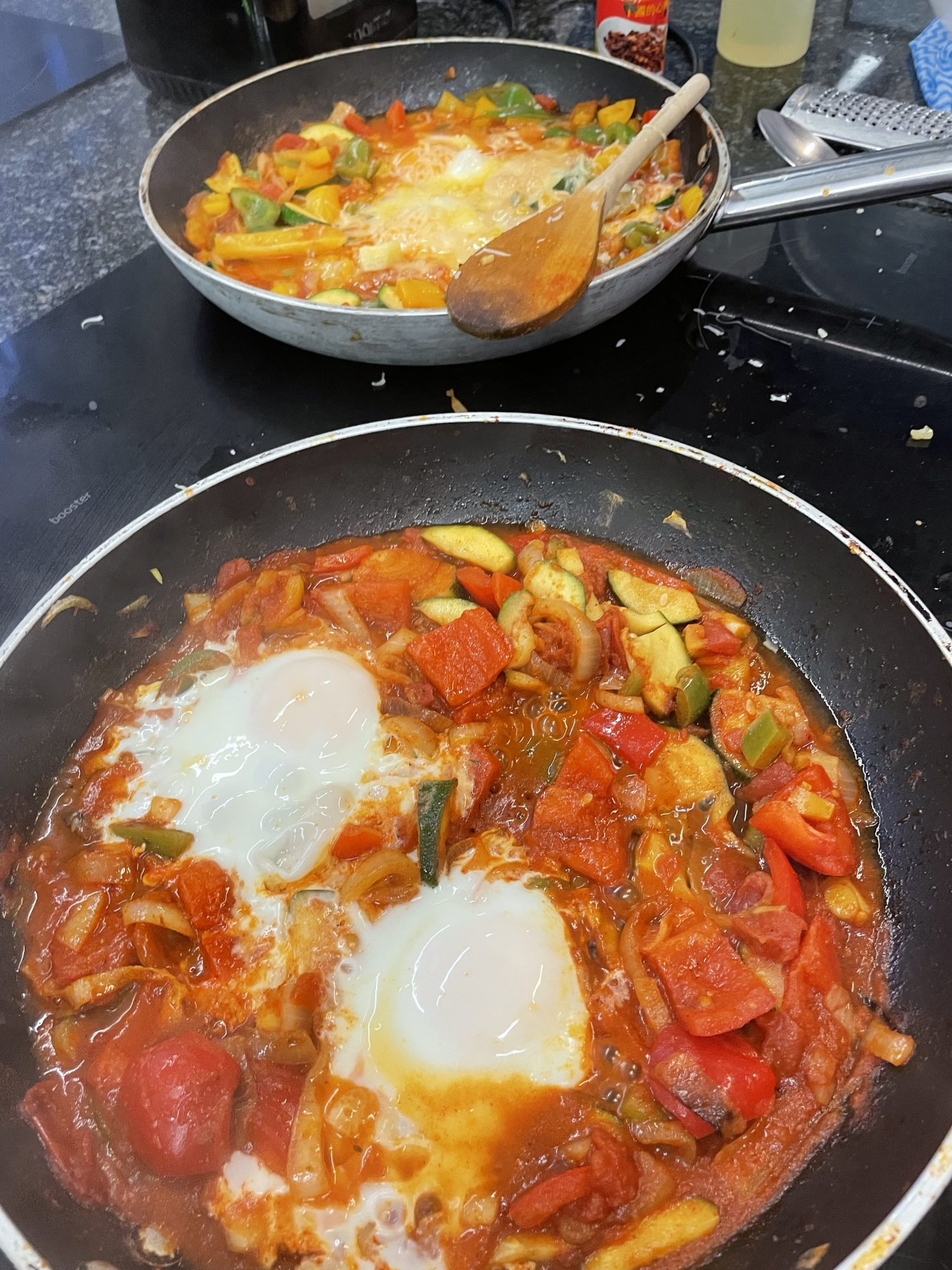
Easy flatbread recipe
Vegetarian
1/2 cup Greek Yoghurt
¾ cups Self-Rising Flour + more if needed
1/2 tablespoon Olive Oil
A pinch of salt
- Combine yoghurt and flour together and form a ball
- Let it rest for 5 minutes
- Divide into 2-3 smaller balls and flatten
- Warm up pan and add oil
- Fry flatbreads until golden brown
by Agnieszka Wcislo
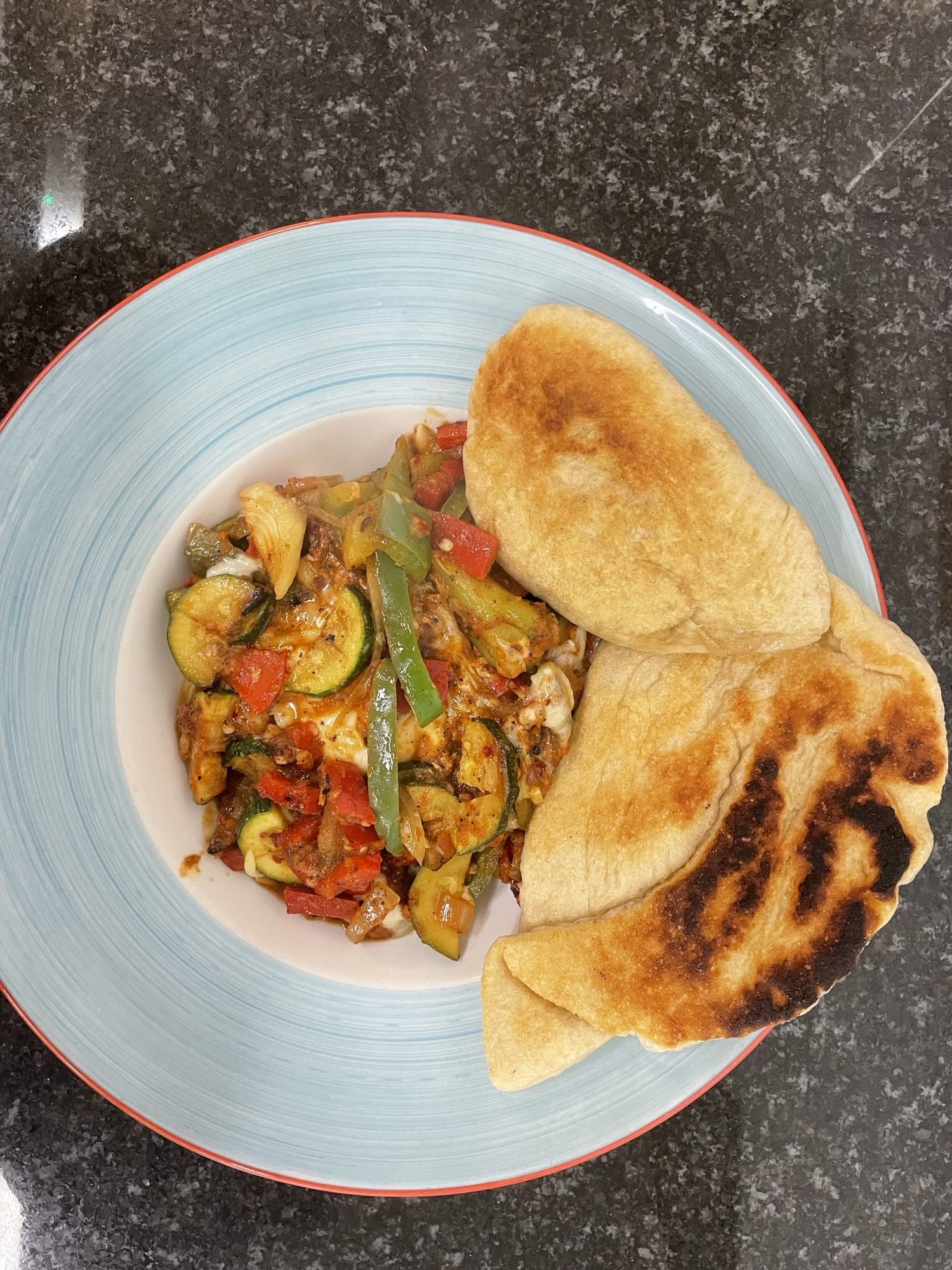
No-bake cookies recipe
Contains nuts, can be made vegan
(makes approx. 8 cookies)
1/2 cup peanut butter (or almond butter)
2/3 cup oats
1/2 cup dark chocolate, chopped (around 100g)
3 Tbsp chopped nuts
1 Tbsp coconut oil
• In a bowl mix the peanut butter, oats and chopped nuts.
• Melt the dark chocolate and the coconut oil.
• Add the dark chocolate to the peanut butter mixture and mix them until combined.
• Take a Tbsp of this chocolate mixture and place on a baking sheet
• 1 Tbsp is for 1 cookie. Don’t be discouraged if the mixture loses its shape and becomes more of a bark and not that much of a cookie – still tastes great.
• Leave in the fridge for around an hour and then eat some
by Agnieszka Wcislo
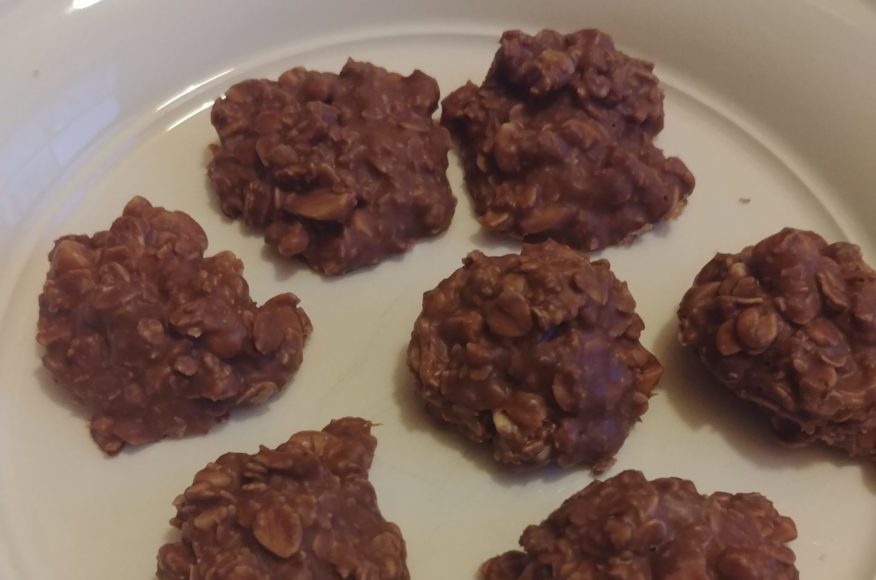
Closing pages
The Islington Food Partnership is a network of over 200 local organisations and individuals working together to build a thriving local food system in Islington.
We want to hear from local people who are interested in food security, access to food, influencing policy or building power in their communities.
Find out more about us & how you can get involved:
www.islingtonfoodpartnership.org.uk
email: hello@islingtonfoodpartnership.org.uk
text: 07543491311
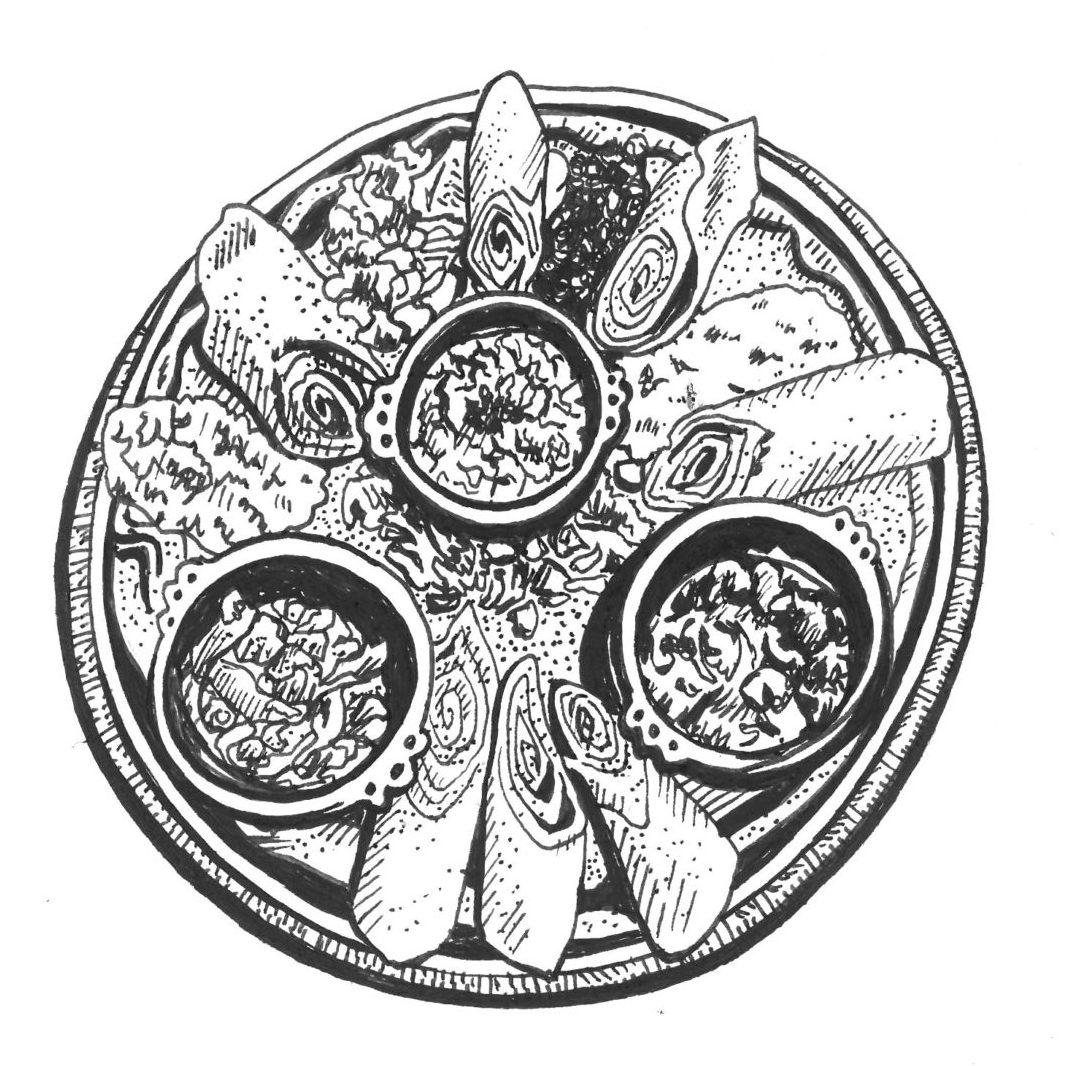
Handrawn image of injera and Eritrean dishes on a platter
Thank you to everyone who shared their food stories and to Sustainable Food Places, whose funding helped to make this project possible.
Editing and additional illustrations by: Candice George
Printed by Footprint Workers Co-op
100% recycled paper
Logos: Manor Gardens Welfare Trust, Sustainable Food Places and the Islington Food Partnership


